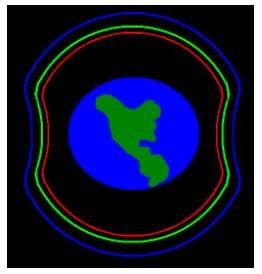Information in a Two-Line Element set (TLE) can be used
only with the SGP4 (MSGP4) propagator. TLEs use mean elements, which cannot be inserted into the other propagators, which use osculating elements. A more detailed explanation is below.
As a satellite moves through its orbit, the path is not exactly circular because there is more mass at the “equatorial bulge” of the Earth. This is shown (exaggerated) in the green orbit below:
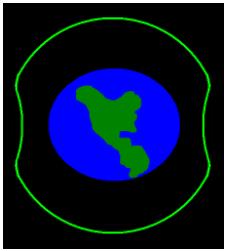
Two line element sets (TLEs) are based on “mean elements”, which average out the orbital elements throughout the entire orbit. This can be represented by the purple orbit shown below:
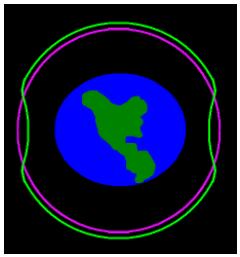
The purple orbit and the green orbit both represent the same satellite. However, the green orbit represents the “real”, osculating motion, while the purple orbit represents the mean elements. When you import a TLE into STK, it knows that it is using mean elements, and makes all of the necessary calculations to generate the “green” orbit from the “purple” data. However, if you were to assume that the data in the TLE corresponds to “real” state vector of the satellite, your results would be flawed. To see why, consider the cases where the epoch times correspond to point “1” and point “2” below:
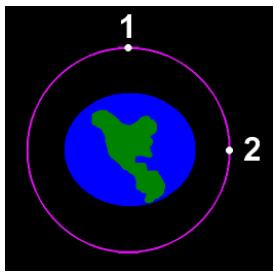
If you were to use the data at point 1 using a propagator other than MSGP4, STK would assume that the values represent the actual state of the satellite at that location. Based on that, it would account for orbital fluctuations and propagate the “red” orbit below:
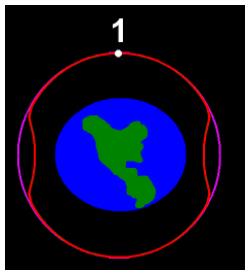
However, if you used the values at point 2 as a “real” state vector, STK would generate the following “blue” orbit:
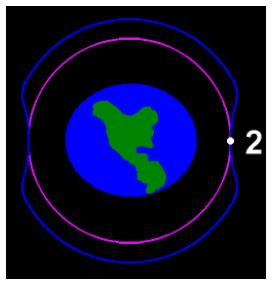
When you compare the true (green) satellite orbit to the ones that used the mean elements as state vectors, you can see a significant difference:
